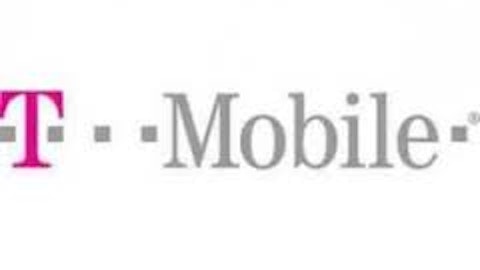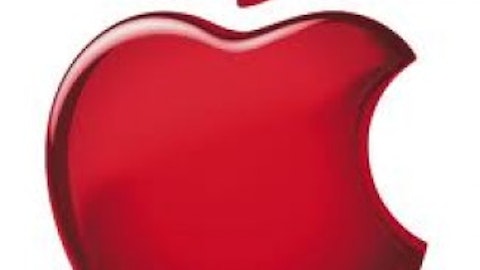Happy Saturday! There are more good news articles, commentaries, and analyst reports on the Web every week than anyone could read in a month. Here are eight fascinating ones I read this week.
How to read smarter
Reading is a skill. The blog Farnam Street shares a tip from the book The Little Book of Talent: 52 Tips for Improving Your Skills on how to become a better reader:
Research shows that people who follow strategy B [read ten pages at once, then close the book and write a one page summary] remember 50 percent more material over the long term than people who follow strategy A [read ten pages four times in a row and try to memorize them]. This is because of one of deep practice’s most fundamental rules: Learning is reaching. Passively reading a book — a relatively effortless process, letting the words wash over you like a warm bath — doesn’t put you in the sweet spot. Less reaching equals less learning.
One way to get it done
Charlie Munger grew a publishing company with his investing chops:
Daily Journal Corp., the California publisher that counts Charles Munger as its chairman, more than tripled in value since 2008 after the company jumped into stocks during the financial crisis.
Best known as Warren Buffett’s longtime business partner, Munger began accumulating equities in early 2009 at the Daily Journal. The portfolio was worth $112.3 million as of March 31, or about 65 percent of the Los Angeles-based publisher’s current market value …
Munger’s investments were disclosed in a May 2009 filing under the headline, “Liquidity and Capital Resources.” The section outlined how the publisher was sitting on about $9 million in gains after spending $15.5 million on common stocks.
The results kept getting better. Three months later, the Daily Journal said the holdings were valued at more than $41 million. By the end of September of that year, they appreciated to almost $48 million.

Had enough
From CNet, Facebook Inc (NASDAQ:FB) is having a harder time holding down talent:
Facebook Inc (NASDAQ:FB) executives and senior staffers have been saying goodbye to the social network at a speedy rate ever since its May 2012 initial public offering.
In the past few days alone, head U.S. sales guy Tom Arrix and Gowalla co-founder Josh Williams have said they’re headed for the exits. Sure, Facebook Inc (NASDAQ:FB), with 4,900 employees, should be forgiven for some expected turnover, but when the top brass bow out in successive fashion, some without rhyme or reason, you can safely bet that it’s not all sunshine and rainbows inside the world’s largest social network.
Human nature
Yale economist Robert Shiller says bubbles are here to stay:
Because bubbles are essentially social-psychological phenomena, they are, by their very nature, difficult to control. Regulatory action since the financial crisis might diminish bubbles in the future. But public fear of bubbles may also enhance psychological contagion, fueling even more self-fulfilling prophecies.
One problem with the word bubble is that it creates a mental picture of an expanding soap bubble, which is destined to pop suddenly and irrevocably. But speculative bubbles are not so easily ended; indeed, they may deflate somewhat, as the story changes, and then reflate.
Up-to-the-minute
Mark Schneider in Financial Times has an idea: No more quarterly reports from companies. Instead, financial results should be presented continuously, in real time:
Increasing the speed of reporting can deliver other benefits to both investors and companies. Businesses would benefit from improved internal financial controls as a result of a streamlined reporting structure. The timeliness of operating decisions would improve with more frequent disclosures. Investors would benefit from tighter financial management.
Gone would be some of the accounting games of the past — such as the loading of sales into the last business days of a quarter. Yes, commercial practices vary between industries, but still a company with a steeper sales incline at quarter-end than its peers would have some explaining to do. The overall financial industry would also ultimately benefit from a smoother process of sharing information and building expectations.
Overexposed
TD Ameritrade Holding Corp. (NYSE:AMTD) clients had a big exposure to Apple Inc. (NASDAQ:AAPL) stock on margin:
One-third of the multi-billion dollar margin balances at TD Ameritrade Holding Corp. (NYSE:AMTD) are in accounts that have more than 25 percent market exposure to Apple Inc. (NASDAQ:AAPL).
“Our most widely held stock, our most actively traded stock and our most margined stock is Apple Inc. (NASDAQ:AAPL),” TD Ameritrade Holding Corp. (NYSE:AMTD) Chief Executive Fred Tomczyk said on a conference call to discuss the firm’s quarterly earnings report.
“A very large company that makes up a big part of our margin book has not participated in this rally over the last year.”
Bucking the trend
The newspaper industry has tried to stay alive by slashing costs. The Orange County Register did the opposite, and it’s thriving:
Conventional media wisdom posits several ways for a newspaper to commit suicide. It can drive up costs by multiplying staff and pagination. It can prioritise print over digital. It can erect a hard paywall to seal itself from the Internet.
Or, if you are the Orange County Register, you can do all three. The California daily did so almost exactly a year ago, prompting astonishment and morbid curiosity. How long would it last? In a crisis-stricken industry more accustomed to death by a thousand cuts, the Register, which dates back a century, at least promised a dramatic and original demise.
But this week, as the paper prepares to celebrate the experiment’s first anniversary, it appears to be thriving. “It’s working,” marvelled the editor, Ken Brusic. “We believe that this will work.”
The article 8 Fascinating Reads originally appeared on Fool.com is written by Morgan Housel.
Fool contributor Morgan Housel has no position in any stocks mentioned. The Motley Fool recommends Apple, Facebook, and TD AMERITRADE. The Motley Fool owns shares of Apple, Facebook, and TD AMERITRADE.
Copyright © 1995 – 2013 The Motley Fool, LLC. All rights reserved. The Motley Fool has a disclosure policy.





